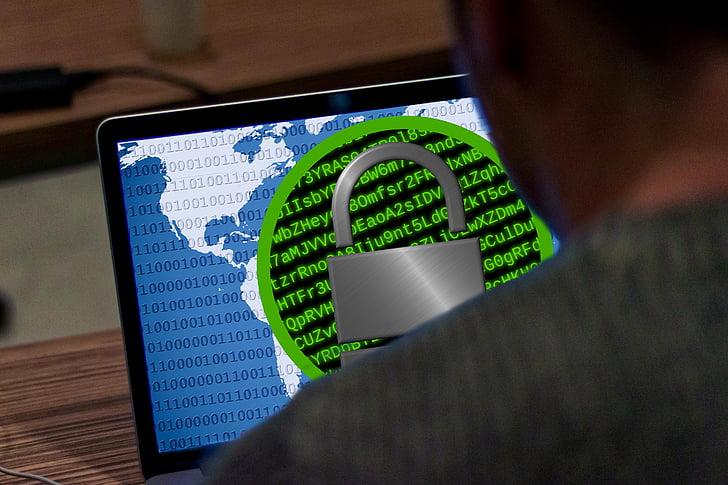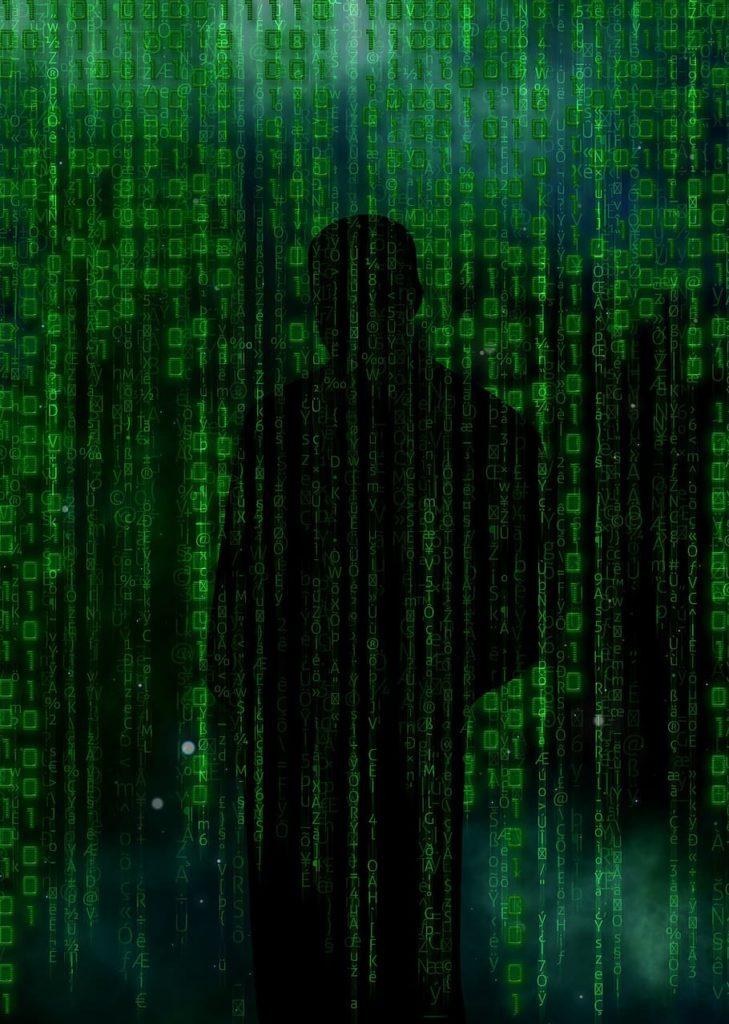Computer forensics investigators are technology professionals. They contribute to criminal investigations by extracting data from computers and storage devices.
It is true to say that it is a desirable career because of its attractive salary and vast job opportunities. So if you are considering pursuing a career in this area, you need to follow a few basic steps to start your career.
Today, we will discuss the computer forensics investigation career, the skills you need to succeed in the role, and more. Let’s get into the details!
How to Become a Computer Forensics Investigator
Here is a recommended 5-step route to starting your career in the computer forensics investigator area:
1. Plan to Choose a Suitable Path
The fact is that becoming an investigator in this field is not easy. Therefore, do not expect to get this job overnight. It is essential to choose a suitable path that will help you achieve your career goal.
For instance, if you prefer to pursue a career in government, it is essential to comprehend the specific requirements for this position.
In addition, government-run private, non-governmental investigative organizations are often not too strict about applicants’ qualifications. So, start by determining if you prefer to take a job in the government or the private sector.
2. Completion of Educational Program
According to the BLS, entry-level positions in this field typically require a bachelor’s degree in areas such as:
- Computer science
- Computer forensics
- Criminal justice
- One related field
In some cases, having suitable certifications or an associate degree may also entitle you to an entry-level position.
3. Get Certifications
Some jobs in this field may require applicants to hold certifications. Even if the position you’re aiming for doesn’t require a certificate, getting one is recommended.
Having at least one certification will make employers appreciate you, allowing you to stand out from other potential candidates as it shows your knowledge and skills.
Here are some recommended certifications:
- CFCE – Certified Forensic Computer Examiner
- CCE – Certified Computer Examiner
- GIAC – Global Information Assurance Certification
- EnCE – EnCase Certified Engineer
- ACE – AccessData Certified Examiner
Always remember that possession of certifications is not a requirement for all positions. Yet, you will be favored when you have achieved at least one certificate.
4. Apply For A Position
After completing the necessary programs to receive relevant certifications and degrees, it’s time to find your first job.
You can expect to get jobs at government agencies like:
- The National Security Agency
- The Federal Bureau of Investigation
- The Central Intelligence Agency
- And more
These government agencies will list their hiring positions on their websites.
You might also consider applying to local, smaller government agencies. They also provide a listing on their website.
If you prefer working in the private sector, finding good options on popular job sites like LinkedIn, Glassdoor, and Indeed is possible.
5. Non-stop Learning
The field of computer forensics is constantly changing. Therefore, even if you have landed the position you prefer, you need to enhance your skills by constantly learning.
We recommend attending conferences. It is an excellent method to stay up to date with emerging technologies.
Besides, it is good to follow cybersecurity publications and computer forensics to obtain the latest technological trends and advancements.
What Are Computer Forensics Investigators?
In essence, computer forensics investigators are technology experts. These investigators often have an essential role in:
- Government organization
- Law enforcement agency
- Law firm
- Accounting firm
- Bank
- Private investigation company
- Software development company
- And more
The primary responsibility of these investigators is to fight cybercrime by extracting digital evidence from digital devices, such as hard drives, computer systems, or other storage devices.
In addition, organizations can also hire you to analyze electronic documents in emails, images, and other files to identify potential evidence.

Generally, this field is still relatively new, and it has become more prevalent in recent times.
The increase in demand for this position is due to technological advancement and the increasing involvement of technology criminals.
Besides, the expansion of computer forensics has also led to the birth and development of many specialized areas, such as the investigation of networks, databases, firewalls, mobile applications, mobile devices, and more.
What Does A Computer Forensics Investigator Do?
Investigators in this field will usually do whatever technical duty is necessary to assist officers dealing with cybercrime.
Assume a law enforcement agency is arresting a criminal suspect for cybercrime. This suspect attempted to erase his hard drive to destroy any evidence of cybercriminal activity.
In this case, as a skilled investigator in the field, it’s your responsibility to try to retrieve data that this suspect has deleted. You will likely have to use specialized tools and forensic techniques to complete this process.

Besides that, you may also have to assist in tracing cybercriminals by trying to analyze the metadata in their posts. That’s when the ethical hacking technique can come into play.
To sum up, the job and responsibilities of this profession will vary depending on the investigation’s needs being carried out. The scenarios above are just the most common roles you will likely encounter as an investigator in this area.
The profession of a computer forensics investigator comes with many duties, such as:
- Help build cases against criminals.
- Recover lost or damaged assets.
- Gather digital evidence from networking systems.
- Protect computer systems.
- Identify lost files after a cyber attack.
- Provide testimony whenever required.
- Provide reports and feedback on cybercrimes.
- And more
Why Should You Learn Computer Forensics?
This field has become increasingly popular in recent years. According to the BLS prediction, the industry will grow by seventeen percent from 2016 to 2026.
Due to the increase in cybercrime, state or local governments tend to hire more forensics investigators in this field to meet demand.
In addition, thanks to the rapid pace of technological development in society, there will be a need for forensic computer science technicians to keep pace with the continually changing landscape.
There is no denying that technology has always been the driving force behind the world economy’s future.
Meanwhile, the computer forensic area will become more and more prevalent across all areas to protect data and identify cybercriminals.
Salaries and Career Options
Investigators in this field often receive pretty high salaries. In addition, when pursuing this career, you have a lot of career opportunities.
These forensics investigators can hold many different titles and shoulder different responsibilities, depending on their work. In addition, the salary they receive varies depending on their position in the company.
| Job | Job Description | Career Growth | Average Salary |
|---|---|---|---|
| Security Consultant | Responsible for building secure infrastructure. Thereby, they can protect their company from cyber threats. | 28% | $85,667 |
| Forensic Computer Analyst | Undertake data retrieval from computers or storage devices to help law enforcement officers with cybercriminals | 21% | $85,800 |
| Information Tech Auditor | Responsible for auditing the network system to assess risks, promptly identify security weaknesses, and propose suggestions to improve the system. | 28% | $64.772 |
| Malware Analyst | Responsible for analyzing, detecting, and reporting cyber threats. It requires proficiency in data recovery techniques and programming languages. | 9% | $88,898 |
| Computer Systems Analysts | Responsible for studying an organization’s computer systems. In addition, they also need to suggest ideas to help their company operate more efficiently. | 9% | $88,270 |
| Information Security Analysts | Plan and implement security methods to protect corporate or business computer systems & networks. | 28% | $95,510 |
Security Consultant
These professionals are responsible for preventing cybersecurity threats by protecting computer systems and networks from malware.
Their job includes updating and installing software to keep the security plan running smoothly. They also need to test security solutions to prevent any malware attacks.
Forensic Computer Analyst
The primary responsibility of these analysts is to assist law enforcement officers in cybercrime by assessing illegal cyberattacks. This position requires candidates with an excellent ability to gather information from crime scenes.
Besides, you also need to extract the data as quickly as possible. Then, you have to determine the type of cyberattack that occurred, the stolen data, and the perpetrator of the attack.
Information Technology Auditor
If you accept this position, you will have to inspect the organization’s infrastructure to identify and uncover weaknesses in its security systems. As a result, you will improve the system to prevent cyber attacks.
These auditors will have to make plans and work with the security team. In addition, communicating with colleagues about strategies is essential.
Malware Analyst
The main task of these experts is to identify cyber threats like bots, worms, trojan viruses, etc. That way, they can protect their organization’s data.
In addition, the responsibilities of these analyses may include testing a cyberattack and developing future malware prevention protocols.
Computer Systems Analysts
These analysts will primarily assist a company in using technology most effectively. Also, they will perform extensive research and evaluation to identify software to help their company run more smoothly.
Their responsibility may also be to train company employees on how to utilize the software or troubleshoot any problems their company may deal with.
Information Security Analysts
It is the responsibility of these analysts to plan and implement security measures. Through this, they will contribute to protecting computer systems, networks, essential data, and more.
These analysts typically work in the healthcare industry, financial institutions, commercial banks, and government.
Generally, the growth of this position is much faster than the average for all jobs.
Skills for a Computer Forensic Investigator
You will need to possess various hard and soft skills to succeed in this field.

Here are some recommended skills:
Computer Skill
As an investigator in this field, you will primarily work with computers and digital storage devices. So, it is essential to understand how computer networks work, including topology, network protocols, and more.
That’s not all. You will also be asked to be familiar with different operating systems. As a result, you can navigate and discover information on various platforms accurately and quickly.
Technical Skill
Besides mastering computer skills, you should also understand how a computer’s hardware and software systems work.
It includes knowing how to use different programming languages, such as:
Proficiency in digital forensic tools is also required. These digital forensic tools are EnCase, Xplico, FTK Imager, etc.
Malware Analysis Skill
Some tasks will require you to analyze or reverse engineer a piece of malware. While IT is a challenging skill to develop, a good grasp of malware analysis will be beneficial in understanding how a cyber attack happened.
Communication Skill
As an investigator in this field, you will often be asked to prepare summaries of information or reports that you find during your autopsy.
These reports are then sent to legal firms or law enforcement agencies as evidence in criminal investigation cases.
So, you will need a solid foundation of communication skills to help people who are not in the same field as you understand your work easily.
Critical Thinking Skill
As an investigator in this area, you must hone your critical thinking skills. It allows you to solve the crime by uncovering information deleted or hidden from computers and digital storage devices.
The Bottom Line
As a forensics investigator, you are responsible for providing a critical and unique perspective in criminal investigations by leveraging digital evidence.
So if you prefer the combination of technology and crime-fighting, let’s start following our guide to landing this potential job soon.
Let’s bring the evidence to light and the criminals to justice!
Thank you, and see you in our next update!
